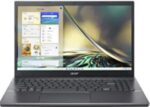Buying a New Computer: Key Things to Consider
Table of Contents
Purchasing a computer is not an easy task, even if you know what exactly you want and understand the technical specifications. No doubt, you need to consider your work requirements, but you also have to keep other key factors in mind before you invest in any device.
Whether you are a first-time buyer or upgrading your laptop, you need to navigate the morass of computer models available in the market. In this article, we try to break down the jargon to help you find the right device within your budget.
Decide the Operating System
One thing that will help you filter your options when you are buying a laptop is the operating system. Think over and decide on the operating system you want to buy. Although your laptop pick will limit to Windows or macOS, you need to consider your budget.
While Windows gives you extended features and wider compatibility with software and devices, macOS gives you experience. Both operating systems come with their unique set of features; consider exploring Windows and macOS versions full list.
Pick Your Processor
Once you decide on the operating system you want to buy, you will ultimately have an idea of the software applications you are going to run on your laptop. Now, it’s time to think about the processor. Your options include Intel or AMD.
If you select Intel, you will be getting i3, i5, i7, or i9, where i9 is the most powerful and i3 is the least. With an AMD processor, you get AMD 3, AMD 5, or AMD 7, where the latter is the most recent version equivalent to Intel 7.
Get the Latest Graphics Card
All the laptops include graphics cards and most cards are integrated into the motherboard. Integrated graphic cards are fine for most users unless you are a graphics designer or animation specialist who works with 3D art forms.
Most Intel laptops come with Nvidia graphics cards which are considered power-efficient. On the other hand, AMD processors are paired with Radeon graphics cards that are powerful and render excellent graphics quality.
Buy a Bigger Storage Drive
Storage media is where you store all your files, images, media, and everything else. When buying a storage drive for your new laptop, keep in mind – the bigger, the better. No storage limit is sufficient particularly if you work in a remote setting.
Another important aspect that can influence your decision is the type of storage you want to buy – an SSD or an HDD. SSD (solid-state drive) is faster and power efficient than the HDD (hard disk drive). You should go with the 256 GB SSD for faster data read and write tasks.
Get Plenty of RAM
Random Access Memory (RAM) is the component that holds all the tasks while the processor works in them. The RAM has to be huge, say 8 GB for an average user – the more, the merrier. So, try to get at least 8 GB RAM even if you don’t work on heavy apps.
Buying more RAM will prove to benefit you in the long run. When your system begins to store heavy-load applications, and you start to multitask a lot, RAM will keep your system up. The RAM allows you to run multiple apps at the same time without feeling resource-constrained.
Ensure Multiple Ports
The laptop you pick must have multiple ports, which makes it easier to connect multiple devices. Make sure your computer has 1 USB-C port, 1 USB-A port, an HDMI port, and a headset or microphone jack.
Having multiple ports will allow you to connect your headset, external SSD, wired keyboard or mouse, and other peripherals necessary to attend office meetings. If you don’t have sufficient ports, consider buying a hub.
Take Note of Hinges
This is an ordinary way to check your computer’s sturdiness, but it’s a powerful way to test the durability factor. Visit your nearest electronics store and hold the laptop you want to buy to test if you can hold it with one hand and how powerful the hinges are.
So, when you are checking the laptop physically, make sure to check the webcam. This will help you to test the image quality the laptop renders, which is an important feature and most needed when you are attending online meetings or classes.
The Conclusion
When buying a laptop, pay attention to details and note down what each laptop offers and how much you can upgrade. Also, when comparing different models, make sure to compare the 256 GB SSD variant with another 256 GB variant for a fair comparison.
Buying a laptop is daunting, but it doesn’t have to be. Keep a note of your work-related needs and what specifications can help you accommodate those needs. Then think of your budget and see if all the specifications fit into it. This will help you make the right buying decision.


